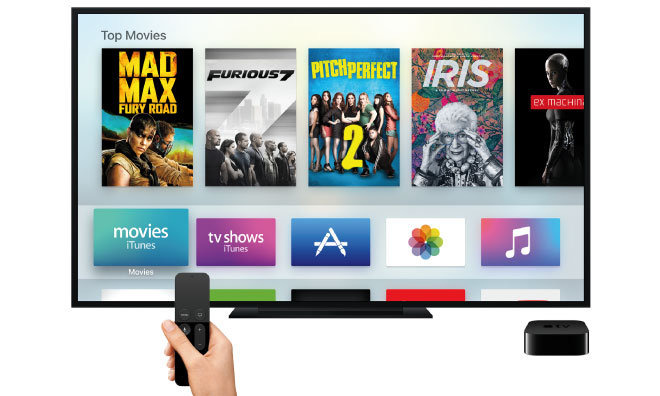A recent post on asia-centric blog Matcha Tea investigates the sway Japanese culture had over Apple cofounder Steve Jobs, and how that country's meditations on aesthetic beauty, mindfulness and life influenced what has become one of the world's largest companies.
People often speculate and debate about what influenced Steve Jobs and how his principles helped shape Apple and its products. Those that have read about Jobs, especially since his death, will know he was fond of Japan and practiced Zen Buddhism, but Matcha Tea offers a deep dive into the subject.
Author Ryan Hellmers explores Jobs' relationship with Japan, ranging from a love of Japanese art and cuisine, to his respect for Sony, to a direct comparison between matcha tea and Apple philosophies.
"While the care of growing and grinding matcha tea is artisanal before even the complexity of using it in a tea ceremony, matcha is meant to be a normal feature of life which leads to serious appreciation of art while also enlivening health and providing economic livelihoods for tea growers," Hellmers writes. "It is one part art and one part useful."
And while the reference may not be immediately apparent to Apple device users, it does ring true. Take the iPhone for example. Before its inception, mobile devices tended to have small screens and physical keyboards, along with removable batteries and customizable fascia. Apple stripped out the superfluous and streamlined design to the essential.
The iPhone was, and is, predominantly screen - the part that's useful. Its simplistic design with a single physical home button and ports for only the most necessary of functions belies the complexity of its internal computing components. The idea can be further extended to Apple, a company whose doctrine aligns with Japanese ideology.
"Apple enables productivity without requiring it, and this certainly played a role in the popularity of the devices with consumers," he writes. "While they offer high reliability for business functions, they also offer convenient functionality for personal use."
Hellmers also compares Apples stance on privacy and security to Japanese Buddhism. Just as Buddhism encourages stillness and the creation of private space, Apple strives to keep personal data personal.
In an previously published Nippon.com article by Japanese journalist Hayashi Nobuyuki, Jobs' love for all things Japan is also documented in some detail, focusing on his repeated trips to Japan for work and pleasure, his interest in Zen Buddhism, and his friendship and rivalry with Sony - who helped inspire both the way in which Apple manufactures devices and Steve's "uniform" consisting of a black turtleneck - of which he had hundreds especially designed and made by Issey Miyake - and blue jeans.
While Steve Jobs may no longer be with us, his want and need to create devices like iPhone continues today, following similar design aesthetics as to when Apple's first smartphone was originally conceived. Derived in part from Japan, Apple's quest to achieve a delicate balance between leisure and productivity, art and technology, still lives on.
 AppleInsider Staff
AppleInsider Staff







-m.jpg)






 Christine McKee
Christine McKee
 Malcolm Owen
Malcolm Owen

 Sponsored Content
Sponsored Content

 Amber Neely
Amber Neely











15 Comments
And they are known for smoking a great peace pipe. Makes sense.
Lol. Jobs liked anything that was beautiful, smart and helpful. Japanese culture definitely represents this. So does Swedish culture. Basically Jobs (in no small way aided and perhaps guided by Jony Ive) took "form follows function" to its logical conclusion and did so consistently. Starting with the Apple 2, which seems to be the spiritual forerunner to the original Mac, which perfected the idea. Much later came the iPod, which was a total example of this. Then the iPhone. And it hit the nail on the head. Next we had an iPad that changed the face of "e-readers" like that atrocious, button filled, poorly screened Kindle. Look at the iMac today. There is literally no other computer that represents purpose in form like that particular machine. Then look at a near competitor. And see what they do. Take Microsoft and the much hyped Surface products. Form is trying to be there, but it can't maximize, because it's not sure which function it's trying to do. I think a tea company may be overreaching a bit with the Jobs comparison (just in time with the movie, eh?), but at least the Japanese share Jobs' good taste in a number of ways. Thoughtfulness, beauty, and practicality are key exhibits in the legacy of Jobs as well as Japanese culture.
I would argue that the Japanese Soto Zen school (as practiced by Steve's Japanese Buddhist Monk mentor) is a greater influence. The one-finger swipe from left to right that opened the original iPhone home screen evokes classic Japanese simplicity & eloquence...like the brush stroke of a monk writing Japanese script. Soto Zen evokes spartan simplicity. I have no doubt Steve resonated with this philosophy or was a practitioner at some level.
so... maybe we should say
"Japanese tea culture would not have done that"
Read "Autobiography of a Yogi", Paramahansa Yogananda, free on Apple's Bookstore. According to Isaacson, Steve reread this about once every year or so...